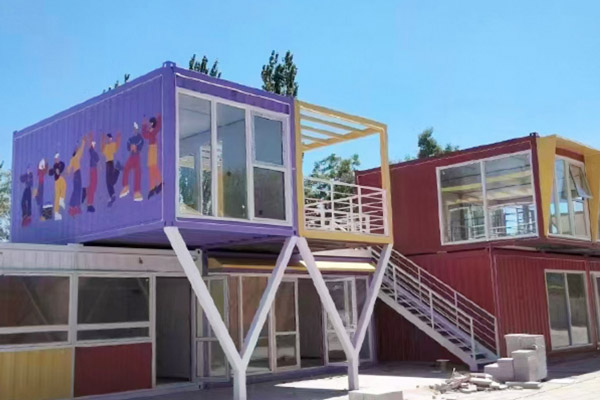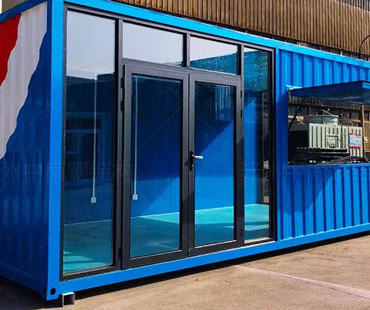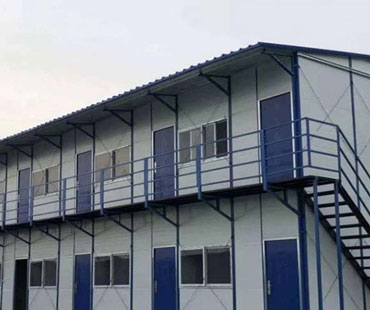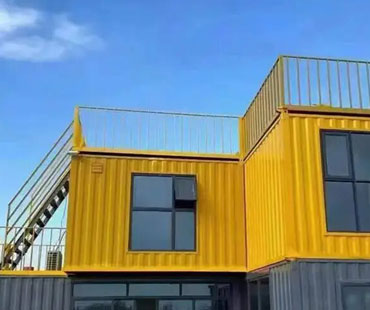In recent years, the concept of container homes has gained substantial popularity, transforming the way we think about housing and construction. Originating from the need for affordable and sustainable living solutions, these homes are constructed from repurposed shipping containers. However, the applications of products from China container factories extend far beyond just residential use. Zhengyu Container Housing Company explores the diverse applications of these products, highlighting their impact on various industries and their role in promoting sustainability.
Container homes represent an innovative housing solution that addresses several critical issues, including affordability, sustainability, and rapid construction. Utilizing shipping containers, which are often discarded after their initial use, builders can create stylish and functional living spaces. These homes are not only cost-effective but also environmentally friendly, as they repurpose materials that would otherwise contribute to waste.
China container factories have been at the forefront of this trend, producing high-quality, modified shipping containers that can be transformed into homes. By integrating modern design concepts and energy-efficient technologies, these factories have helped make container homes an attractive option for many families, particularly in urban areas where housing demand is high.
While container homes are a significant aspect of the container revolution, the products from China container factories have diverse applications in commercial settings as well. Businesses are increasingly turning to modified shipping containers for various purposes, including:
1.Retail Spaces: Container shops have become a trendy solution for pop-up stores and mobile retail. These portable units can be easily transported and set up in different locations, making them ideal for seasonal markets, festivals, and urban retail environments. Brands can create unique shopping experiences in these stylish spaces.
2.Cafés and Restaurants: Many entrepreneurs are utilizing container-based structures to establish cafés and restaurants. These establishments benefit from the flexibility of design and the ability to create outdoor seating areas. Additionally, they often require less initial investment compared to traditional brick-and-mortar locations.
3.Offices and Workspaces: Container offices are gaining traction as businesses seek innovative and cost-effective solutions for commercial space. These modular units can be used as temporary or permanent offices, providing a functional workspace that can be easily expanded or relocated as needed.
4.Event Venues: The versatility of shipping containers makes them suitable for various events, including exhibitions, trade shows, and festivals. Container-based venues can be designed to accommodate different activities, from art displays to entertainment events, offering a unique atmosphere for attendees#### Environmental Sustainability and Eco-Friendly Practices

The shift towards using products from China container factories also aligns with growing environmental consciousness. Repurposing shipping containers reduces waste and minimizes the demand for new building materials, significantly lowering the carbon footprint associated with traditional construction methods. Here are some ways in which container products contribute to sustainability:
1.Energy Efficiency: Many container homes and commercial units are designed with energy-efficient features, such as solar panels, insulation, and rainwater harvesting systems. These elements reduce energy consumption and promote self-sufficiency, making them appealing to environmentally conscious consumers.
2.Reduced Construction Waste: By utilizing pre-existing structures, container construction minimizes the amount of construction waste generated during the building process. This approach not only conserves resources but also reduces the ecological impact associated with material production and disposal.
3.Modular Design: The modular nature of container units allows for easy expansion and modification. Businesses and homeowners can adapt their spaces as needs change, reducing the need for new constructions and further enhancing sustainability.
Container products from China container factories are also making significant contributions in humanitarian contexts, particularly in disaster relief efforts. The durability and portability of shipping containers make them ideal for rapid deployment in crisis situations:
1.Temporary Housing: After natural disasters, container homes can be quickly assembled to provide immediate shelter for displaced families. These units offer a secure and livable environment while more permanent housing solutions are developed.
2.Medical Facilities: In areas affected by crises, container units can be converted into mobile clinics or hospitals. Equipped with necessary medical supplies and equipment, these facilities provide essential healthcare services in remote or disaster-stricken regions where traditional infrastructure may be compromised.
3.Community Centers: Container structures can serve as community hubs for education, social services, and support programs. These centers can be quickly established to facilitate community rebuilding efforts, providing resources and a sense of normalcy for affected populations.
As the demand for affordable, sustainable, and innovative building solutions continues to grow, the role of China container factories is likely to expand further. The versatility of container products positions them as a key player in addressing various global challenges, from housing shortages to environmental sustainability.
With ongoing advancements in design and construction practices, we can expect to see even more creative applications of container products. From luxury container homes to high-tech office spaces, the potential is limitless. As industries evolve, the contributions of China container factories will remain pivotal in shaping the future### of urban living and sustainable development.


